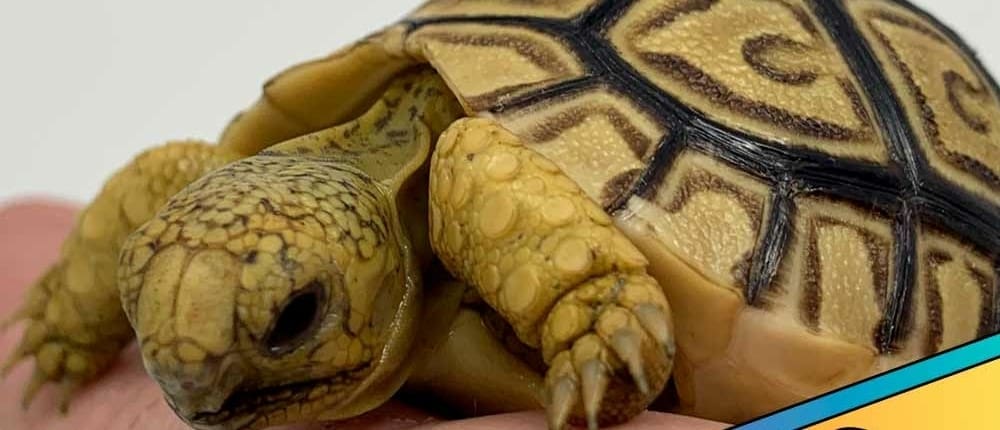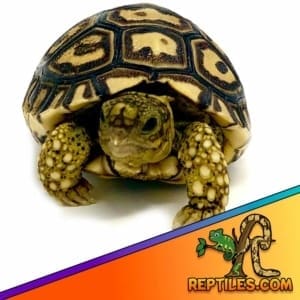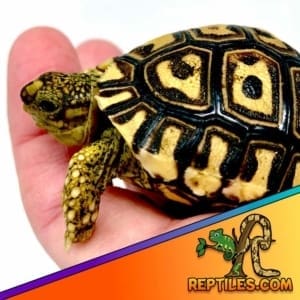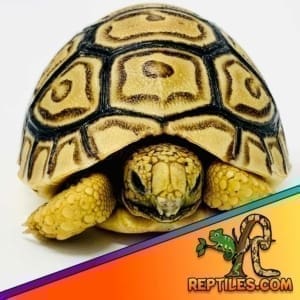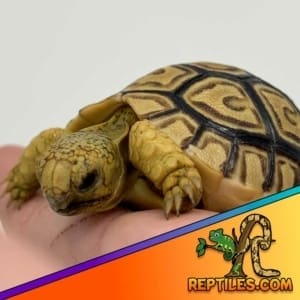Giant South African Leopard tortoise care
Giant Leopard tortoise care
Some of the largest of all land animals and the 4th largest species of tortoise for sale in the world, the African leopard tortoise for sale is an amazing animal. These guys and gals start out around 1.75″ and reach around 14-16″ within 10-12 years at full size. Keeping them is fairly easy so long as you have the correct setup, inclusive of lighting, humidity, substrate, temperatures and diet / supplements. Our leopard tortoise for sale include both regular and Giant leopard tortoise. Be sure to check out all of our baby tortoise for sale as well as our baby tortoises for sale sections to see the entire selection. Our entire selection can be found at the full tortoise for sale area of our website which lists all species available.
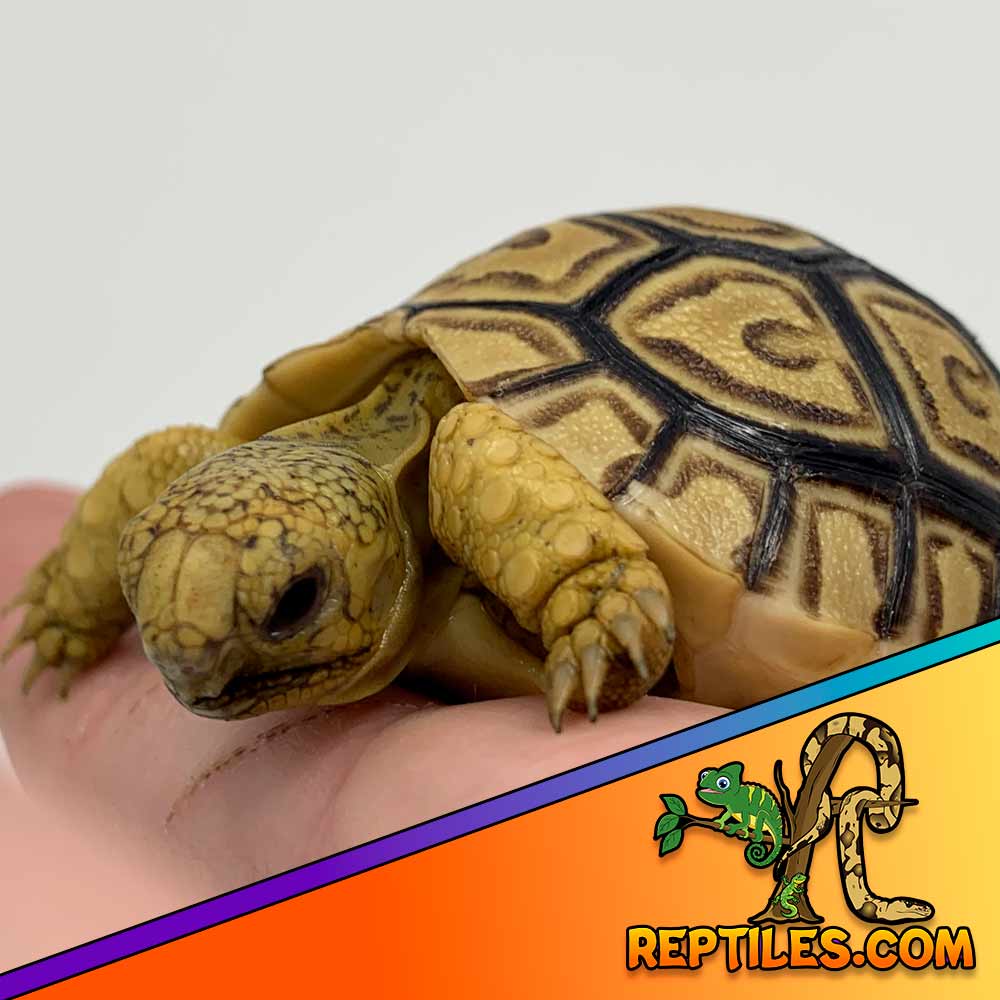
Giant south African leopard tortoise
Keeping a baby Giant South African leopard tortoise can be easy and rewarding so long as the setup is correct. Some care parameters will be listed here and we also offer a large leopard tortoise care sheet that goes into detail regarding habitat setup and parameters.
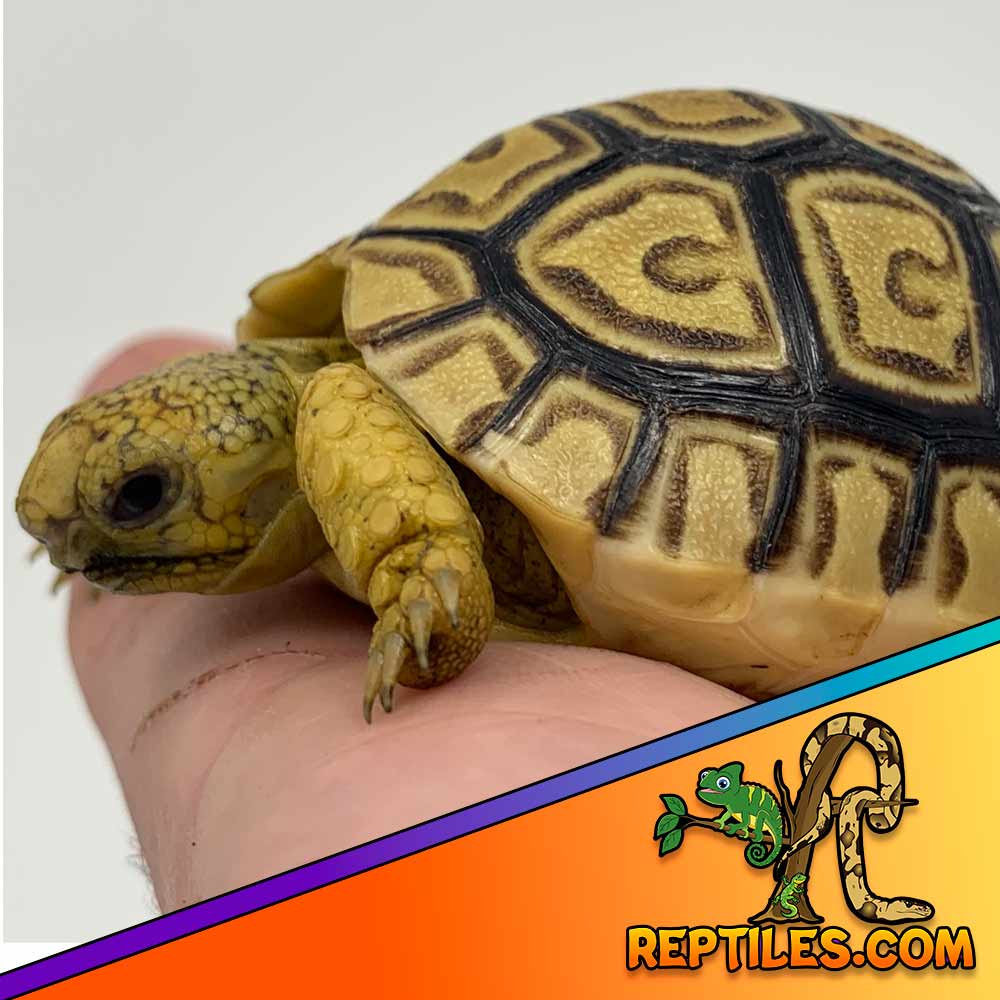
leopard for sale – Humidity
Humidity could not be more important for the proper care and growth of a baby leopard tortoise for sale. Most people misunderstand that beings they are from Africa which is thought to be a dry area that they do not need humidity and that assumption could not be more incorrect. Humidity in the area of 75% is 100% necessary during the first 18 months of life of a baby tortoise. For this reason it is often easier to keep them in an enclosed environment rather than an open top environment like a tortoise table. Be sure to check out all of our baby tortoise for sale as well as our baby tortoises for sale sections to see the entire selection.
Humidity can be supplemented by utilizing a reptile fogger which we also offer here for sale and as part of our complete tortoise kit. As the baby tortoise gets older the importance of humidity decreases however without proper humidity will start to notice a domed shaped shell with pyramid in being a result of both too much protein and two little humidity.
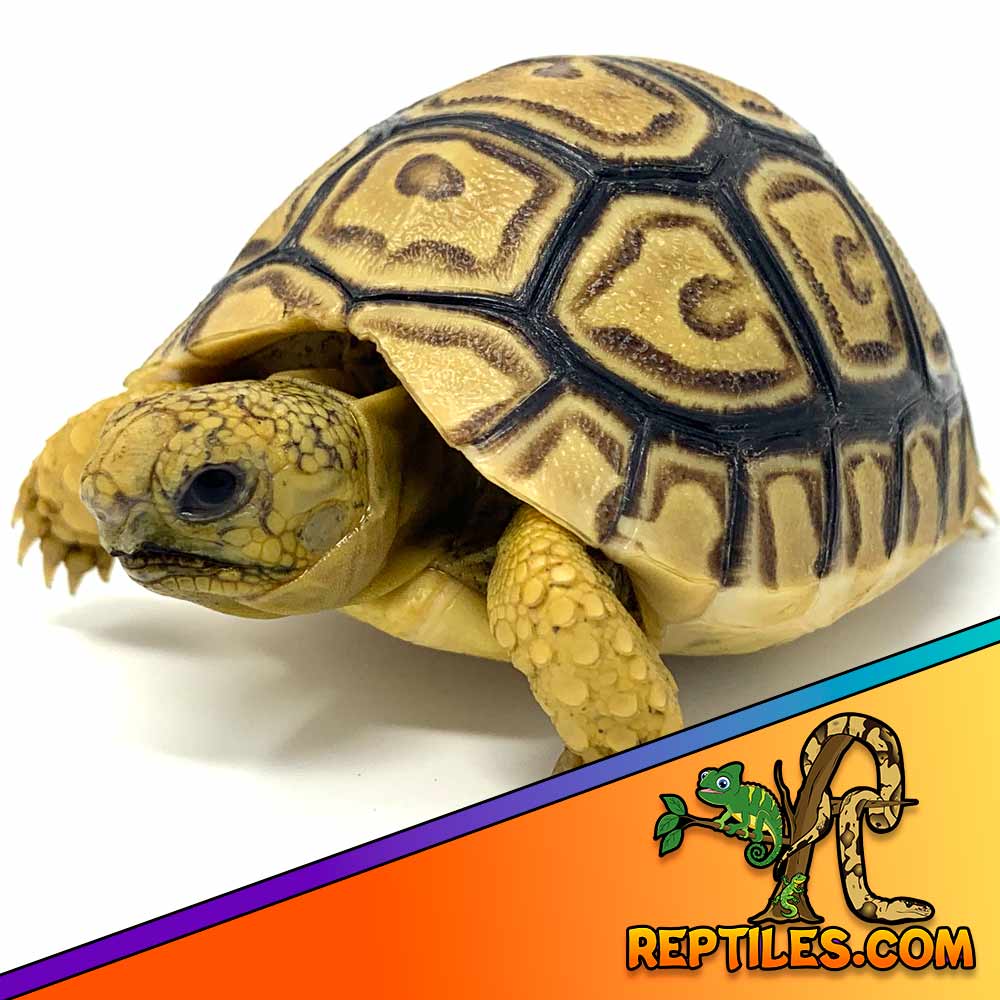
leopard tortoise lighting
Lighting is also very important that has to be the correct type of bulb distance from the substrate and UVB percentage. Typically a 10% UV be also known as 10.0 is sufficient but must be a tube style not a screw and compact fluorescent lamp this is key to providing proper spectrum of UVB. Also, consider the distance for example, a 10% UVB lamp probably should be somewhere around 12 to 15 inches from the substrate. Depending on how big or small the habitat is the UVB lamp may also help in providing a temperature gradient however more often than not a supplemental heat source will be needed to provide a basking area. We will discuss this in the temperature section.
leopard tortoise habitat temperature
Providing the proper temperature to your new baby tortoise is keto successfully keeping them healthy. Since tortoises are cold blooded animals like all reptiles, they rely on regulating their internal temperature through their environment. For this reason is important to have the proper ambient temperature as well as the proper cooler area daytime temperature and most important the basking space basking area he can be provided by a ceramic heat emitter, a deep heat emitter, a mercury vapor lamp, or a basking uva lamp. The hot spot for your new baby tortoise should be in the 92-99 degree range. Cold spot should be on the opposite end of the enclosure to provide a temperature gradient. The coolest part of the habitat should be in the neighborhood of 72-77 degrees. Daytime ambient temps can be anywhere from 77-88 and nighttime as cool as 62 degrees for this species of tortoises for sale.
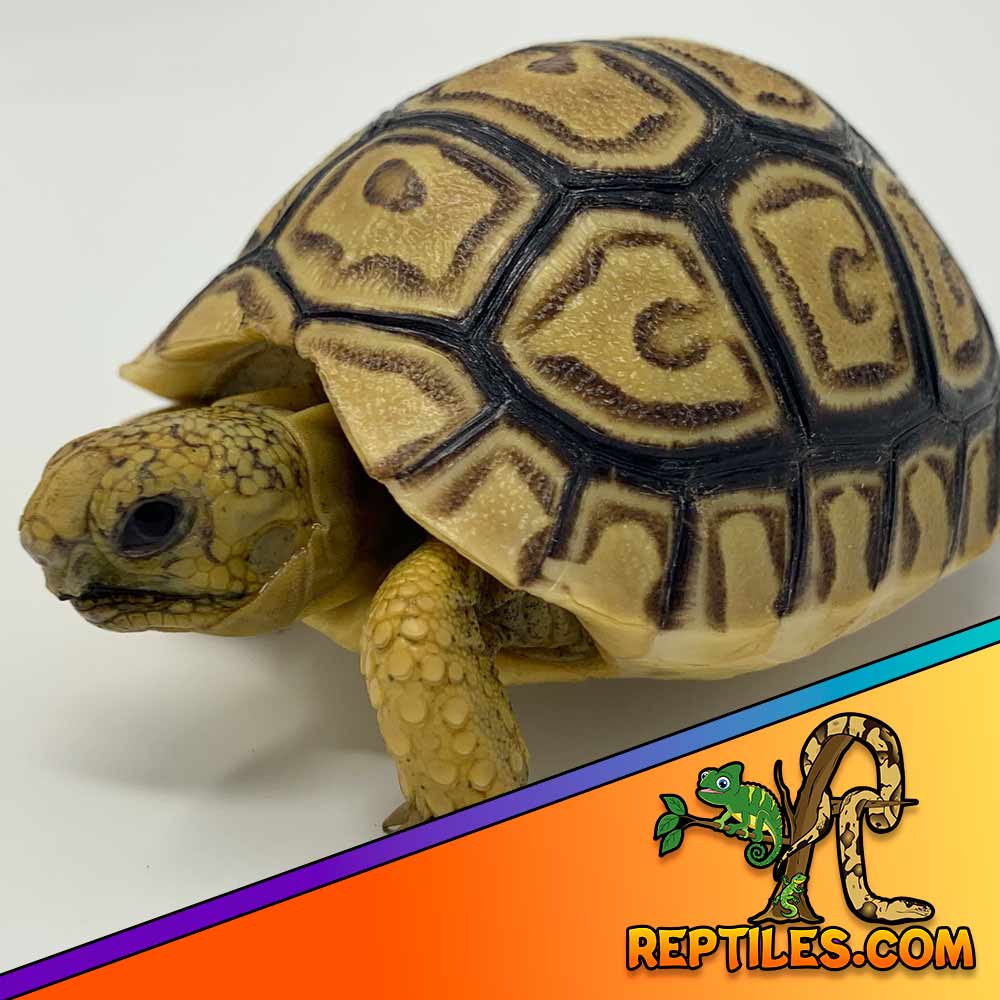
African leopard tortoise diet
Feeding your new baby tortoise for sale is also incredibly important in terms of frequency and what you’re actually feeding your animal. Anything from dry grasses and hay along side tortoise chow which has been soaked in warm water and everything sprinkled with supplements. For supplements we recommend using a calcium supplement that includes vitamin D3 mixed 50% with a reptile or herp vitamin complex. Feeding your tortoise a variety of greens is key and not feeding them the same thing over and over is incredibly important. For example kale in moderation is great but feeding your animal kale day after day will slowly cause them to constipate with undissolved ureates and you will notice this by when they urinate they will deposit large amounts of concentrated white powder.
This white powder is on dissolve your rates due to a slowing of the function the thyroid gland which is caused by over eating kale. Dark Leafy greens like Romaine lettuce, collard greens, mustard greens, endive, or just some of the variety of greens that you can feed your tortoise. Mix that in with the tortoise chow dust it lightly with your supplements and feed your animals every day just the amount that they will consume within 3 to 4 hours. Anything that has not been eaten in 3 to 4 hours should be thrown away.
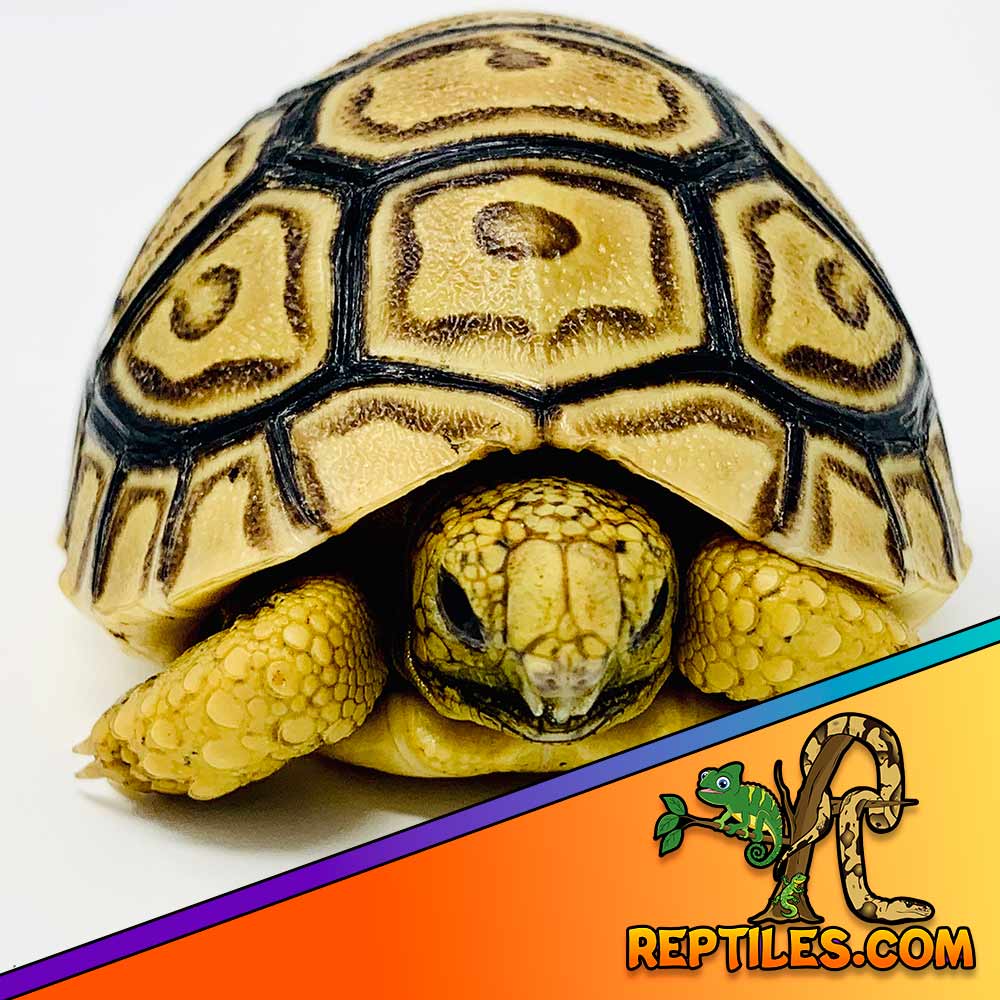
leopard for sale water
Like all living things, your new baby tortoise will need water to survive and thrive. Providing a water source that is extremely shallow and easy to enter and exit is going to be very important also, we recommend soaking your tortoise in shallow 85 to 87° warm water every day for no more than eight minutes or until the tortoise goes to the bathroom in the water this will help ensure that they are properly hydrated and is very important in their overall health and you were successful keeping of them. Be very will cause a great risk of drowning. If a tortoise drowns it is not necessarily immediately it could be the following evening so please keep an eye if you soak your tortoise in water that is considered too deep. Just paying attention to little details like this will be key to keeping your animal successfully healthy.
leopard tortoise habitat
Keeping your baby leopard tortoise for sale happy and healthy also means having the correct environment this is not limited to the size or shape of the habitat but also inclusive of all the variables and parameters that we discussed above regarding the habitat itself. As far as the type of habitat or overall construction and size, this will depend on if it is going to be a permanent structure for an adult Tortoise or something that you were going to upgrade every few years as your animal grows into or out of their current habitat dimensions. For example an adult Sulcata should have an area that is somewhere between a minimum of 4′ x 8′ however they would love to have something doubled it even triple that size. Whereas as a baby tortoise needs something smaller, as small as 2×3′ for example is fine until your tort is 6-8″ in overall shell length. This could take 1-2 years depending on their diet and activity.
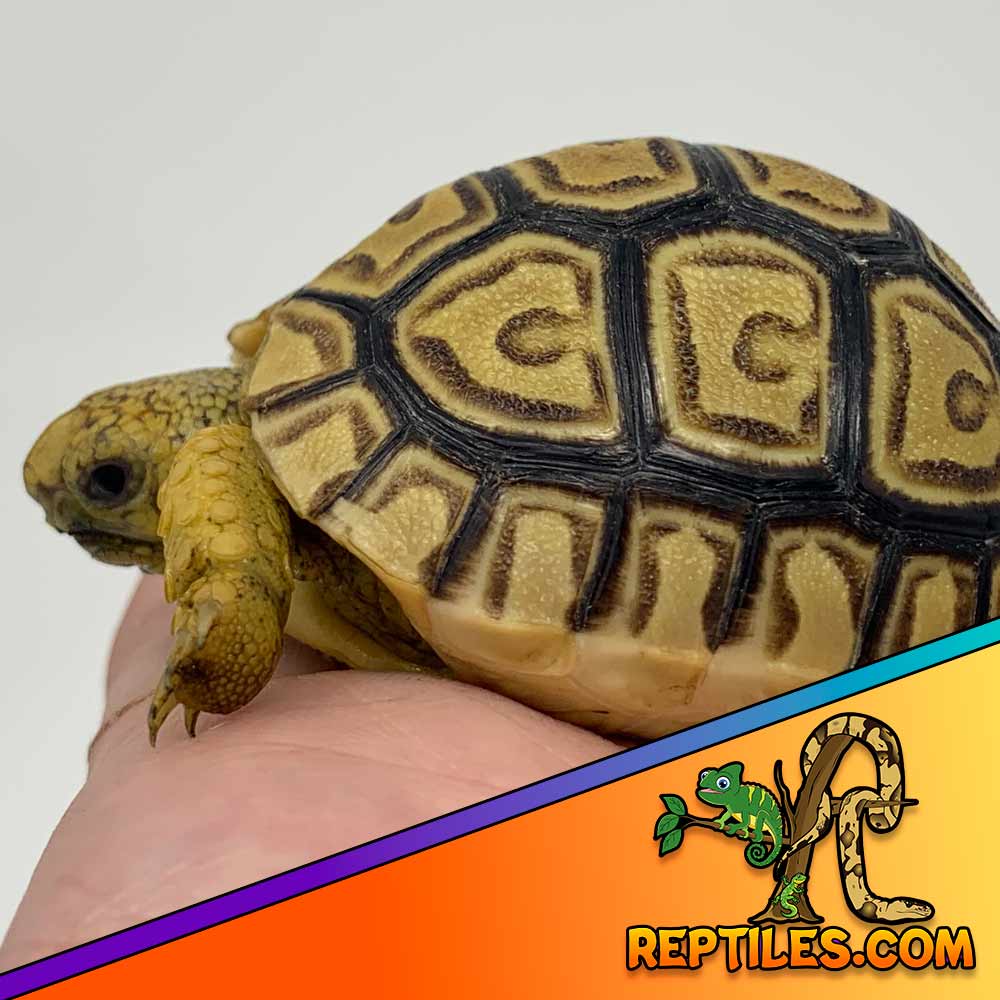
leopard tortoise for sale – size
leopard tortoises for sale are the 3rd largest of all species of tortoise in the world. When you are searching for a baby leopard for sale, consider they are going to get to 24″ and up to 100 lbs. Most will be 18-20″ and 60-70 lbs overall. Managing this size tortoise is not the same as a small species like a Greek tortoise, Hermann tortoise for example, however having a large animal like this is also an experience and super cool if you are setup for it!
leopard tortoise lifespan
Like most species of tortoise, the African leopard tortoise will live a long time. Anywhere from 60 to over 100 years, for this reason many people leave their tortoises to their younger family members or friends. Basically, be ready for a long term relationship with your new tortoise because they are going to rely on you for the long haul, in which this case, is really long.
leopard tortoise breeders
leopard tortoise price
leopard tortoise near me
Other species of tortoise for sale include:
- Sulcata tortoise
- leopard tortoise
- Giant leopard tortoise
- Hermann’s tortoise
- Greek tortoise
- Russian Tortoise
- tortoise for sale
- Egyptian tortoise
- Pancake tortoise
- red footed tortoise
- baby tortoise
- yellow footed tortoise
- cherry head tortoise
- Indian Star tortoise
- Sri Lankan star tortoise
- Burmese Star tortoise

